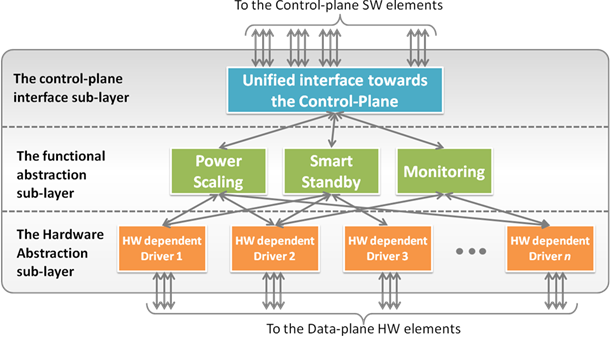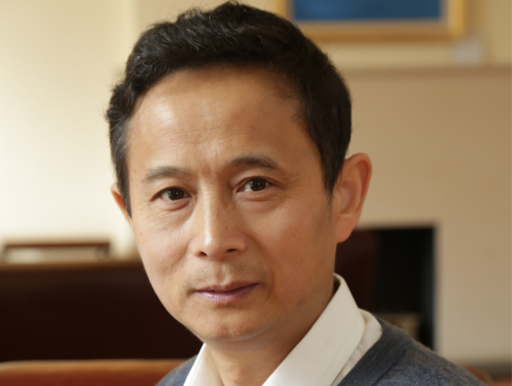
Econet: Low Energy Consumption Networks
-
START DATE
1 Oct, 2010
-
END DATE
31 Dec, 2013
-
FUNDED BY
EU FP7
DETAILS
The project consortium was led by Consorzio Nazionale Interuniversitario Per Le Telecomunicazioni, Italy (CNET) and funded by Framework Programme 7 under Contract no. INFSO-ICT-258454.
The Econet project preceded the foundation of Entwine but it involved two members of Entwine and its objectives were in keeping with Entwine’s mession. These were:
Nowadays, it is widely recognised that the sole introduction of low consumption silicon elements will not be sufficient to effectively curb tomorrow’s network energy requirements. Based on this assumption, the ECONET project will investigate, develop and test new capabilities for the Future Internet devices enabling the efficient management of power consumption so to strongly reduce the current energy waste.The ECONET project will be devoted at re-thinking and re-designing network equipment towards more energy-sustainable and eco-friendly technologies and perspectives. The overall idea is to introduce novel green network-specific paradigms and concepts enabling the reduction of energy requirements of wired network equipment by 50% in the short/mid-term (and by 80% in the long run) with respect to the business-as-usual scenario.To this end, the main challenge is to design, develop and test novel technologies, integrated control criteria and mechanisms for network equipment allowing energy saving by dynamically adapting the device capacities and consumptions to current traffic loads and user requirements.The ECONET project will focus its research and development efforts in three main research axes:- In the first axis, novel network-specific HW/FW technologies will be developed to optimise the power management features.- The second axis will be devoted to develop local and distributed frameworks for dynamic optimization of the trade-off between energy consumption and network performance.- The last axis will focus on the design of a Green Abstraction Layer for interfacing the novel low-level green capabilities with OAM frameworks in a common and standard way.The ECONET project will deliver novel energy-aware device prototypes on which large-scale demonstration tests will be conducted. With a significant dissemination effort, the project will aim at maximising its impact on industrial and network operator communities as well as on standardization bodies.
The DCU involvement was to lead the “workpackage” developing the Green Adaptation Layer, the central layer of the energy-aware network stack developed by the Econet consortium. We developed an energy-efficient router that used frequency scaling to match router performance to demand implemented on the NetFPGA platform programmed in VHDL. This testbed would subsequently be extended to support OpenFlow in the H2020-funded Input project.

A key achievement of the project was to get the Green Adaptation Layer incorporated into an ETSI standard, namely ETSI ES 203 237 (see Green Abstraction Layer standard to manage energy consumption of telecom networks for more information).
More information on Cordis
Project website: https://www.econet-project.eu/
Student(s): Feng Guo, Jing Huang, Jie Jin
Staff: Leonardo Fialho, Ali Ghiasian, Olga Ormond, Yifei Wei, Xing Zheng
Interns: Wenliang (2011), Tejas Patel (2011), Yashank Sakhardande (2011), Xiaowei Ma (2012), Xiangjun Shi (2012), Luigi Sambolino.
Publications
- R. Bolla, R. Bruschi, F. Davoli, P. Donadio, L. Fialho, M. Collier, A. Lombardo, D. Reforgiato, V. Riccobene, T. Szemethy, “A northbound interface for power management in next generation network devices”, IEEE Communications Magazine, vol. 52, no. 1, IEEE, 149-157, 2014
- Alan Kennedy, Xiaojun Wang “Ultrahigh Throughput Low-Power Packet Classification” IEEE Transactions on Very Large Scale Integration (VLSI) Systems, Vol. 22, NO. 2, IEEE, 286 – 299, 2014, IEEE Transactions On Very Large Scale Integration (VLSI) Systems, VOL. 22, NO. 2, February 2014
- R. Bolla, R. Bruschi, F. Davoli, P. Donadio, L. Fialho, M. Collier, A. Lombardo, D. Reforgiato, V. Riccobene, T Szemethy “Exposing energy-aware capabilities in next generation network devices” Proc. IEEE ICC 2013 Workshop Telecom R2S - Second IEEE Workshop on Telecommunication Standards: From Research to Standards, Budapest, Hungary, IEEE, pp. 1286-1290, June 2013
- Tom Molloy, Xing Zheng, Olga Ormond, Feng Guo and Xiaojun Wang “Power consumption in a zfilter publish/subscribe based forwarding node” 2013 IET International conference on Information and Communications Technologies, 27-29 April 2013, IET, 1-6, 2013, Beijing (Best paper award)
- R. Bolla, R. Bruschi, F. Davoli, L. Di Gregorio, P. Donadio, L. Fialho, M. Collier, A. Lombardo, D. Reforgiato, T. Szemethy “The Green Abstraction Layer: A Standard Power Management Interface for Next-Generation Network Device” IEEE Internet Computing, vol. 17, no. 2, IEEE, pp. 82-86, 2013
- J. Huang, O.Ormond, D. Ma, X. Wang “Optimizing energy-efficiency for program partitioning and mapping onto multi-core packet processing systems” Journal of China Universities of Posts and Telecommunications, Vol.19 suppl. 1, Elsevier, 79-86, Jun 2012
- F.Guo, O. Ormond, L. Fialho, M. Collier, X. Wang “Power consumption ayalysis of a NetFPGA based router” Journal of China Universities of Posts and Telecommunications, Vol.19 suppl. 1, Elsevier, 94-99, Jun 2012
- W. Fu, T. Song, S. Wang, X. Wang “Dynamic Frequency Scaling Architecture for Energy Efficient Router” Symposium on Architectures for Networking and Communications Systems (ANCS'12), 1, ACM/IEEE , 139-140, 29-30 Oct 2012, USA (Poster Abstract)
- C. Hu, B. Liu, M. Zhang, B. Zhang, X. Wang “Architectural Design of An Energy-efficient Router” in F. R. Yu, X. Zhang, V. C. M. Leung (Eds), Green Communications and Networking, ISBN: 978-1-4398-9913-7, CRC, 1-31, 2012
- F. Guo, O. Ormond, M. Collier, X. Wang “Power Measurement of NetFPGA Based Router” 2012 IEEE Online Conference on Green Communications (GreenCom), IEEE, 116-119, 26-28 Sept 2012
- D. Reforgiato, A. Lombardo, F. Davoli, L. Fialho, M. Collier, P. Donadio, R. Bolla, R. Bruschi “Exporting Data-Plane Energy-Aware Capabilities from Network Devices toward the Control Plane: The Green Abstraction Layer” 17th European Conf. on Network and Optical Communications (NOC 2012), IEEE, June 2012, Vilanova i la Geltru, Spain (Invited Paper)
- Xing Zheng, Xiaojun Wang “Comparative Study of Power Consumption of a NetFPGA-Based Forwarding Node in Publish-Subscribe Internet Routing " Computer Communications, 28 February 2014, Elsevier, 2014
- F. Guo, M. Song, Y. Wei, L. Sambolino, P. Liu, X. Wang, M. Collier, “Green Precision Time Protocol Router Using Dynamic Frequency Scaling”. In: Zu, Q., Hu, B. (eds) Human-Centered Computing. HCC 2016. Lecture Notes in Computer Science, vol 9567. pp.104-115, 2016. Springer, Cham. https://doi.org/10.1007/978-3-319-31854-7_10
- F. Guo, X. Wang, M Song, Y. Wei, O. Ormond and M Collier, “Greening the NetFPGA Reference Router”, Energies 2016, 9(7), 500; doi:10.3390/en9070500.




